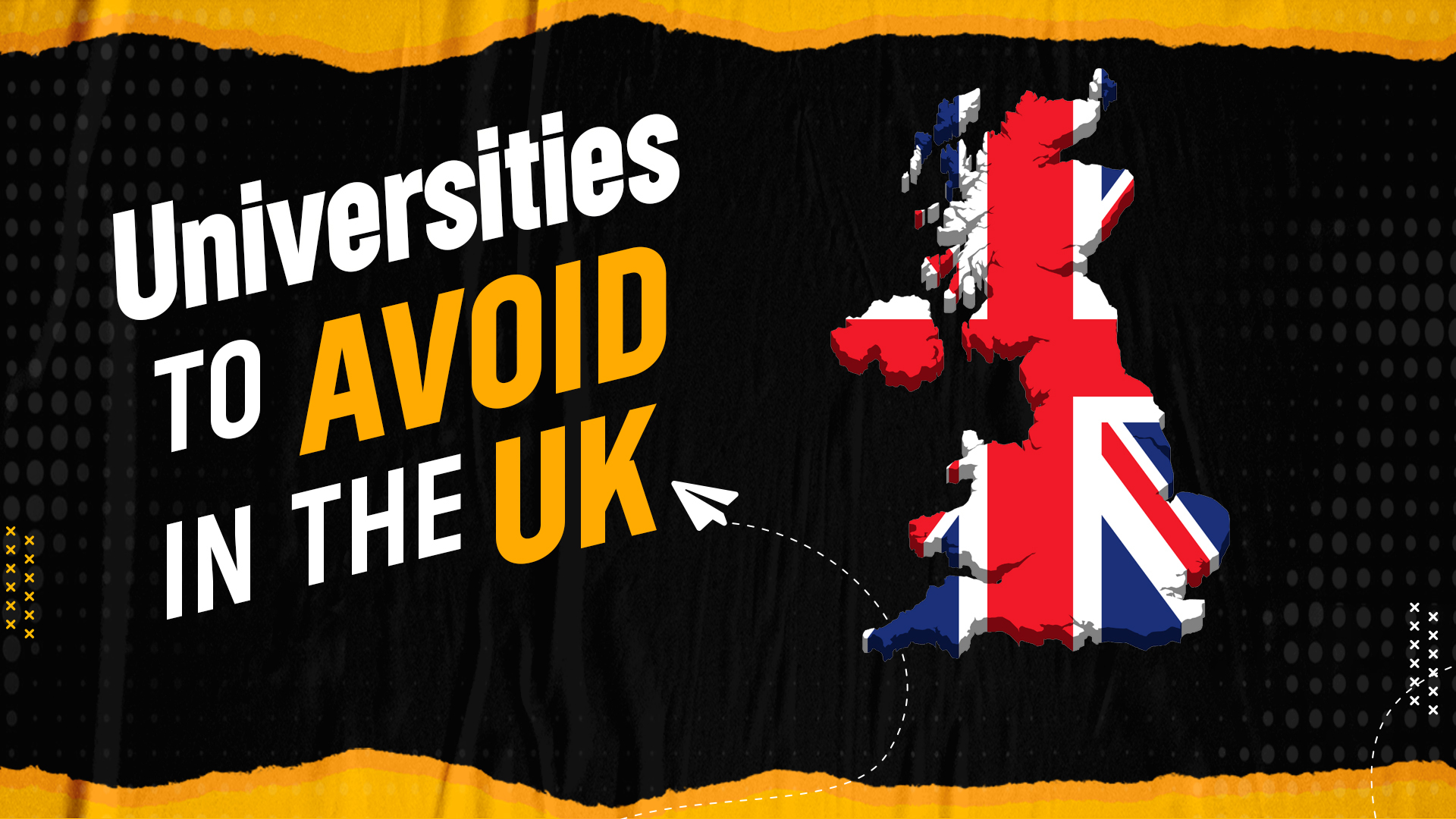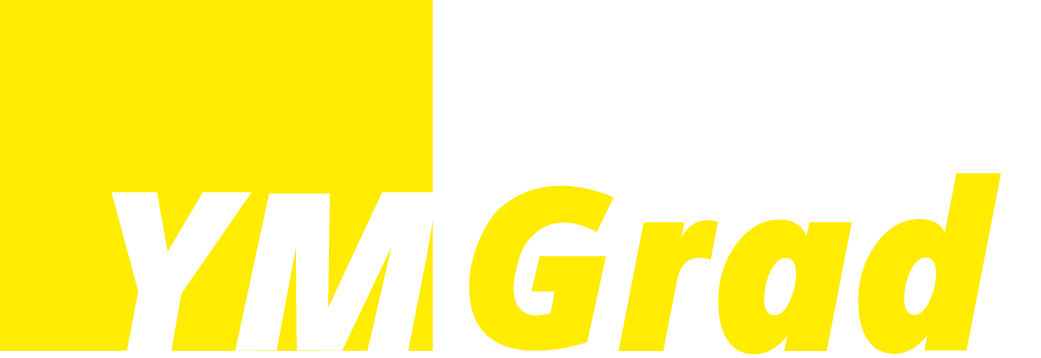Universities to Avoid in the UK - Red Flags to Watch Out For!


The United Kingdom is one of the most popular destinations for international students. The dream of studying in the UK inspires thousands of students every year. However, not every university in the UK carries the same reputation when it comes to student visas. When you are applying to these high-risk institutions, you are not just risking a visa refusal, you are also wasting valuable time and money.
What are Blacklisted or High-Risk Universities?
No student wants to spend months preparing an application only to face a rejection at the visa stage. Yet, in recent years, some UK universities and private colleges have run into trouble with UKVI (United Kingdom Visas and Immigration), with a few even losing their license to sponsor international students. For you as an applicant, this can cause big problems; picking the wrong university could easily raise the chances of a visa refusal. The good news? You can avoid the stress, waste of time, and money by understanding what "blacklisted" or "high-risk" universities are and knowing how to identify them before you start your application.
While the UKVI does not publish any official 'blacklist', it conducts routine checks and monitors universities under the Register of Licensed Student Sponsors, especially focusing on compliance with visa regulations, high visa refusal rates, student enrolment rates, fraudulent student applications, and other academic factors, such as poor standards and lack of accreditation. Based on such assessment, certain universities are considered "blacklisted" or at "high-risk".
When we talk about "blacklisted" universities, it usually means:
- Revoked sponsor licenses – institutions that lost the right to sponsor international students.
- High visa refusal rates – universities or colleges with a track record of students being rejected by UKVI.
- Reputation concerns – cases where institutions have been linked with poor academic standards, lack of accreditation, or past compliance issues.
For students, applying to one of these institutions means UKVI will likely give your application extra scrutiny – which increases your chances of rejection.
Why do Universities Face Reputational or Compliance Issues?
- 1
Not Following UKVI Rules
Universities must monitor students closely, report accurately, and maintain quality. If they slip up, UKVI can suspend or revoke their license.
- 2
Fraudulent Applications
Some institutions get associated with fake or dodgy applications, which damage their credibility.
- 3
Poor Academic Standards
If the universities don't meet academic benchmarks or lack accreditation, they are at risk.
- 4
Low Visa Success Rates
If too many applications keep getting refused, UKVI takes notice.
How to Identify Blacklisted Universities?
- 1
Check the UKVI Register of Student Sponsors
Always start by checking the official list published by UKVI to ensure the universities you are looking at are part of this.
- 2
Look Up Visa Refusal Rates
Student forums and consultancies often share this information. Make sure you use reliable sources to get accurate figures.
- 3
Scan Recent News
Suspension, closures, or scandals usually make headlines.
- 4
Verify Accreditation
Legitimate institutions are members of Universities UK or listed by the QAA (Quality Assurance Agency).
- 5
Talk to Students
Alumni and current students in online forums (like The Student Room or social media groups) can give you real feedback.
Previously flagged Universities by UKVI
In the past, several private colleges, especially in London, had their sponsor licenses revoked or suspended. These were mostly smaller institutions, not the well-known public universities. This is why international students are always encouraged to apply to reputable, accredited institutions.
To tackle this, UKVI imposes "action plans" on the potentially "high-risk" universities. Action plans are formal, probationary mechanisms used to ensure student visa sponsors, like universities, meet their compliance obligations. If an institution fails to meet specific performance benchmarks, a UKVI action plan outlines corrective steps to be taken within a set timeframe. Failure to successfully implement these plans can result in the revocation of a sponsor's license to admit international students.
Some universities that have faced temporary license suspensions or entered "action plans" for visa compliance issues in the past are –
- London Metropolitan University
- University of Central Lancashire
- De Montfort University
- Nottingham Trent University
- Oxford International College Brighton
- London School of Business and Finance
- University of Bedfordshire
Consequences of Choosing Blacklisted Universities
Applying to the wrong university doesn't just put your visa at risk – it comes with bigger consequences:
- 1
Visa Rejection
– your application may be refused overnight.
- 2
Money Loss
– from application fees, deposits, or agent charges
- 3
Time Wasted
– you could miss out on other opportunities
- 4
Long-term Damage
– visa refusals stay on record and can impact future applications, even to other countries.
- Want To Study in the UK? Avoid High-risk Universities.
Get your application in the top 10% of applications.
Sign up now at YMGrad!
Safer Alternatives and Practical Tips for Applicants
Picking the Right University –
When it comes to applying for a UK student visa, choosing a trusted university can make all the difference. One of the safest bets is to apply to well-established, highly reputable institutions.
A good example is the Russell Group, an association of 24 leading public research universities in the UK.
Russell Group universities are often compared to the Ivy League in the United States. They are recognised globally for their academic excellence, research impact, and strong links with industry. Importantly, they consistently maintain UKVI compliance and have extremely high visa approval rates for international students.
Some well-known Russell Group universities include:
- University of Oxford
- University of Cambridge
- Imperial College London
- London School of Economics (LSE)
- University College London (UCL)
- University of Edinburgh
- University of Sheffield
- University of Manchester
- University of Warwick
- University of Bristol
- University of Glasgow
... and many more.
For international students, applying to a Russell Group university, or any other reputable and accredited institution, not only reduces the risk of visa refusal but also ensures that your degree carries strong recognition worldwide.
Practical Tips for Applicants –
These simple steps can save you a lot of stress:

Double-check the sponsor list before you pay any fees.

Contact the admissions office directly to confirm their visa sponsorship status.

Attend official university webinars or information sessions.

Last but not least, always have backup options ready, just in case!
Studying in the UK can truly change your life, provided you pick the right university. While the idea of "blacklisted" universities can sound scary, what really matters is whether your chosen institution has a valid UKVI sponsor license and a solid reputation. By doing a bit of homework, like checking official registers, reading student reviews, and choosing wisely, you will improve your chances of a smooth visa process, as well as guaranteed acceptance from your top choices.
The UK remains one of the most desired destinations for international students. Just make sure you choose carefully, and you will be setting yourself up for success in your academic and professional journey.




